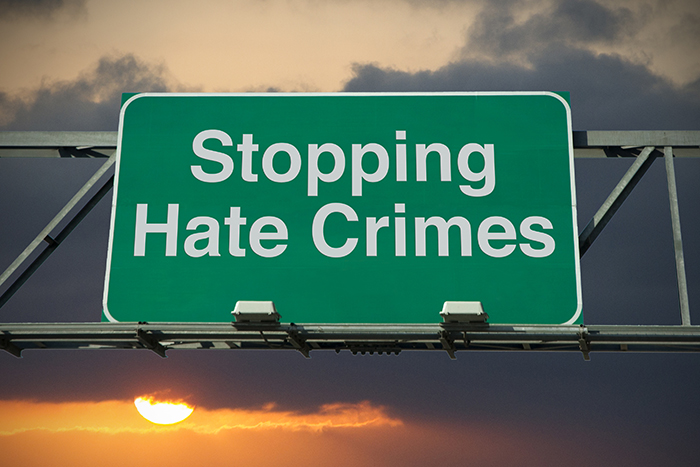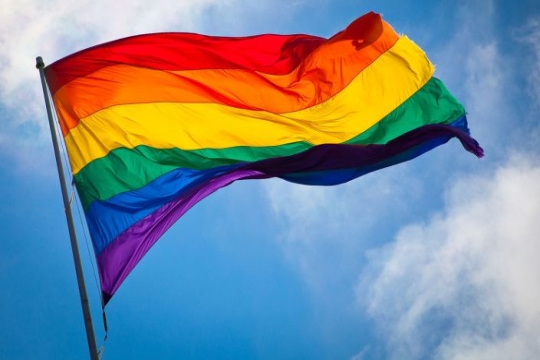
In late August, the FBI released its annual compilation of hate crimes statistics, summarizing all hate crimes reported to the FBI in 2020. The data is alarming and only tells part of the story, as an increasing number of law enforcement agencies did not report data to the FBI.
In 2020, the FBI reported 7,759 hate crimes, a six percent increase from 2019 and the highest total number 12 years. While there was a drastic decrease in the number of reported hate crime murders with 22 hate crime murders reported. 2019's record-setting 51 murders included the xenophobic mass shooting in El Paso, Texas, and the number of reported murders remain at historically high levels.
Race/Ethnicity/Ancestry-based hate crimes made up 63 percent of all reported hate crimes in 2020, with anti-Black hate crimes making up 56 percent of racially based hate crimes, a staggering 43 percent increase in the number of crimes from 2019. Religious-based hate crimes decreased from 1,521 to 1,174, including those against the Jewish community, which decreased from 953 to 676. Antisemitic hate crimes still made-up 60 percent of all religious-based hate crimes, a number that has remained consistent from 2019.
Anti-Asian hate crimes increased from 158 in 2019 to 274 in 2020, a 73 percent increase, however, this number is likely only captures a fraction of the total number of hate incidents according to Stop AAPI Hate. The drastic uptick in violence against Asians is due to the scapegoating of the Asian community for the devastation of the COVID-19 pandemic. This scapegoating has caused fear, pain, and anxiety in Asian-American communities, including Jewish Asian-Americans. As Jews, we have historically faced similar pain, from being blamed for the Black Death in medieval times to similar tropes perpetuated today. We stand in solidarity with the Asian-American community and celebrated when the COVID-19 Hate Crimes Act became law in May 2021. The new law will strengthen hate crimes data collection, reporting, and response measures, giving us hope that future statistics will be more accurate. It is aimed at countering the recent increase in anti-Asian and Pacific Islander violence and will provide state and local law enforcement agencies with additional resources to help prevent and respond to hate crimes.
The law also includes provisions of the Khalid Jabara-Heather Heyer NO HATE Act, named after Khalid Jabara and Heather Heyer, two hate crime victims whose murders were prosecuted as hate crimes but not reported in the FBI's annual statistics. Jabara and Heyer's murders point to a large underreporting problem the FBI faces. Law enforcement agencies are not required to submit hate crime data to the FBI. This year, 15,136 agencies took part in the hate crime data collection, 452 fewer agencies than 2019. 12,869 agencies reported zero hate crimes, including 65 with populations over 100,000. Even with the decrease in agencies reporting, hate crimes rose from 2019-2020, making the statistics even more alarming. This reality makes full implementation of the COVID-19 Hate Crimes Act urgent because it will help improve the reporting of hate crimes, making it easier for agencies and individuals to report incidents and, hopefully, making future hate crime statistics more accurate.
Despite the wishes of those who seek to harm and silence us, acts of hatred will not deter us from standing proudly as Jews and upholding our commitment to "love [the stranger] as yourself" (Leviticus 19:33-34). This year, the URJ partnered with the Anti-Defamation League (ADL) to develop "Responding to Antisemitic Incidents: A New Resource for URJ Communities." The goal of this digital resource is to provide congregations with the tools they need to respond to acts of antisemitism and hate in their communities. When speaking about the new partnership, Jonathan Greenblatt, ADL CEO and National Director, said "we hope to encourage more reporting to help raise awareness of the threats facing the Jewish community, and to leverage our combined resources to convince policymakers of the need to devote more resources to combating extremism while ensuring the safety and security of our communities." The ADL also now has a place specifically for reform Jews to report incidents of hate to help increase reporting.
The FBI's new data illustrates the tangible harm language and rhetoric can have in the United States today. This sobering portrait underscores the need to promote a culture of acceptance that celebrates identities rather than using language to alienate and insight violence against others. Despite the grim data, the COVID-19 Hate Crimes Act gives some hope that future FBI reports will be more accurate and law enforcement agencies will have better tools to respond to hate crimes.
Download "Responding to Antisemitic Incidents: A New Resource for URJ Communities" now. If you or someone you know has experienced or witnessed an incident of antisemitism, extremism, bias, bigotry or hate of any kind, please report it to ADL.
Get involved with the Reform Movement's Audacious Hospitality initiative to foster racial diversity, equity, and inclusion.
Related Posts

Finding Hope

Favorite Jewish Teachings from Leaders of Color


